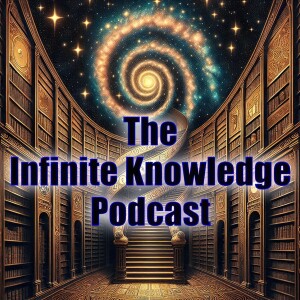
The Infinite Knowledge Podcast
Education:Self-Improvement

The virtue of frugality vs. the opportunities of wise spending. Weighing quality that lasts vs. choosing minimum viable purchases to achieve your needs.
 2024-08-22
2024-08-22
In this audio essay episode, the speaker delves into the complex relationship between the disciplines of frugality and wise spending and their effects on financial decision-making. Frugality, influenced by Stoic philosophy, emphasizes simplicity and minimizes expenses to increase satisfaction, acting as a guide to financial virtue. Meanwhile, wise spending is characterized by the utilitarian pursuit of lasting value, advising the allocation of resources toward higher-quality items that promise longevity and thus represent a form of long-term thrift. Both financial approaches are reconciled with the principle of opportunity cost, which entails forgoing one thing to gain another. The minimum viable purchase and the concept of the total cost of ownership (TCO) are then discussed as methods of balancing upfront costs with lasting value. The essay further probes the Golden Mean as advocated by Aristotle, encouraging the listener to seek balance in their financial endeavors by crafting consumption habits that align with personal values.
In the realm of consumer choices, the essay navigates the nuanced territory between embracing frugality and the opportunities presented by wise spending decisions. Durable goods, though initially costlier, offer long-term savings and sustainability, contributing to a lesser environmental footprint. Conversely, minimum viable purchases may be sensible in rapidly changing technological landscapes, offering immediate utility and affordability. The discussion extends into various theoretical frameworks such as Evolutionary Biology's survival of the fittest, the laws of Thermodynamics on energy efficiency, Behavioral Economics' sunk cost fallacy and opportunity cost, and Sociology’s theory of conspicuous consumption. Each framework provides a unique lens through which to view and make consumer choices that fulfill both personal needs and contribute to a larger ecological and social system. The conclusion emphasizes the importance of a holistic approach to purchasing decisions that considers immediate needs, long-term impacts, and alignment with personal and societal values.
More Episodes
Create your
podcast in
minutes
- Full-featured podcast site
- Unlimited storage and bandwidth
- Comprehensive podcast stats
- Distribute to Apple Podcasts, Spotify, and more
- Make money with your podcast
It is Free
- Privacy Policy
- Cookie Policy
- Terms of Use
- Consent Preferences
- Copyright © 2015-2024 Podbean.com





